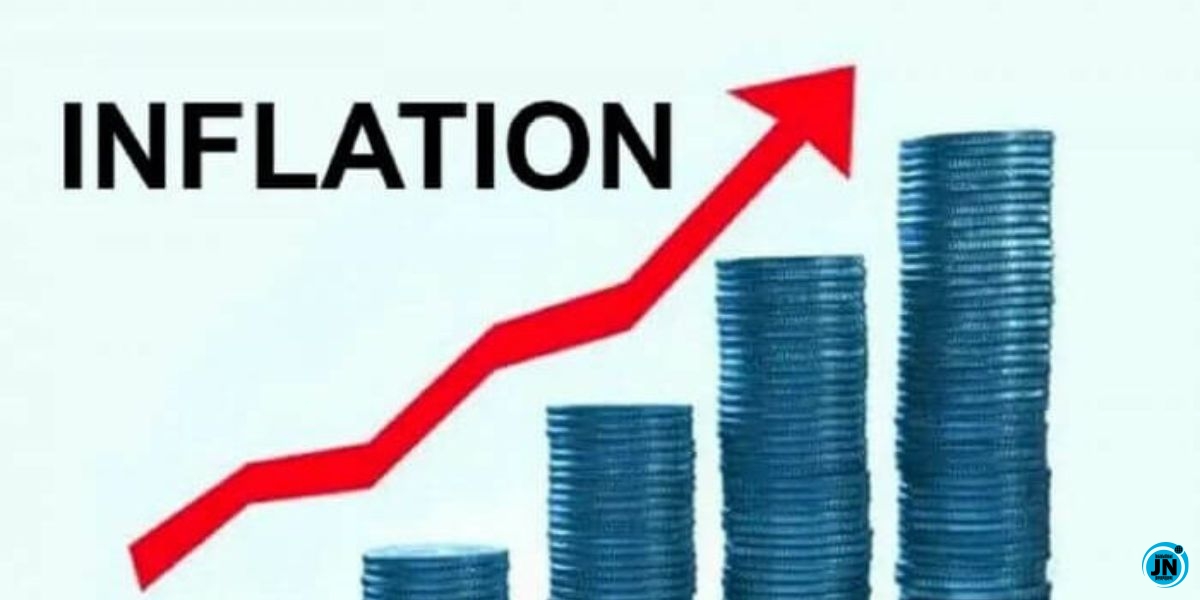
Nigeria’s inflation rate is projected to drop significantly to 27.1% by December 2025, as revealed in the latest NESG-Stanbic IBTC Business Confidence Monitor (BCM) report. This development brings a glimmer of hope for businesses and consumers who have been navigating a challenging economic environment characterized by rising costs and shrinking purchasing power.
The BCM report highlighted that the Nigerian economy has faced unrelenting inflationary pressures in recent years, with 2024 witnessing particularly severe challenges. Factors such as the removal of fuel subsidies, liberalization of the foreign exchange market, and currency depreciation contributed to the persistent rise in prices across various sectors.
However, the report indicates that 2025 could see a gradual easing of these inflationary pressures, driven by ongoing structural reforms and targeted economic policies. According to the report, headline inflation is expected to remain high during the first nine months of 2025 but could decline significantly by the year’s end.
“We anticipate that headline inflation will remain sticky in the first three quarters of 2025, averaging above 30%, before settling below 30% from September onward,” the report stated. “Barring any unexpected shocks to petrol prices or other major economic disruptions, we project that headline inflation may average 30.5% year-on-year in 2025 and drop to 27.1% by December 2025.”
The projected decline in inflation is expected to have a ripple effect on monetary policy. The report suggests that the Central Bank of Nigeria’s Monetary Policy Committee might adopt a more accommodative stance in late 2025, potentially lowering interest rates to stimulate investment and economic growth.
The BCM report also noted a modest recovery in business performance in December 2024, primarily driven by seasonal festive demand. The Current Business Performance Index, which measures economic activity across sectors, improved to +0.77 in December, marking the first positive reading since September 2024. This improvement signals a tentative rebound in business activity, albeit with significant variations across sectors.
Agriculture emerged as the leading sector, recording a net balance of +13.93 due to heightened harvest activities and increased demand for agricultural produce. Non-manufacturing industries also showed resilience, with a net balance of +5.80. However, other sectors, such as manufacturing, trade, and services, continued to face substantial challenges, including high operational costs and limited access to financing.
The Future Business Expectation Index, which gauges optimism about future business conditions, settled at +28.61 in December 2024, down slightly from +33.17 in November. Despite the decline, the index reflects cautious optimism for improved business conditions in the first quarter of 2025. Sectors such as agriculture, manufacturing, and non-manufacturing are expected to drive this optimism.
However, several challenges continue to temper business optimism. The report identified high operational costs, exchange rate volatility, frequent power outages, and complex tax regulations as major hurdles for businesses. Insecurity and limited access to affordable financing also remained significant barriers to growth.
While access to credit improved slightly in December 2024, with a net balance of +8.25, the high cost of borrowing continued to deter investment. The Cost of Doing Business Index rose by +50.32 in December, reflecting the mounting pressures on firms across the country.
Despite these persistent challenges, the BCM report offered a cautiously optimistic outlook for Nigeria’s economy in 2025. The country’s GDP is projected to grow by 3.5% in 2025, up from an estimated 3.2% in 2024. This growth is expected to be driven by improvements in key sectors such as agriculture, manufacturing, and non-manufacturing industries.
The easing of inflation and the stabilization of exchange rates are anticipated to boost consumer spending and overall economic activity. Additionally, targeted policies aimed at addressing structural issues, such as power supply and access to financing, could further enhance economic performance and business confidence in the coming year.
In conclusion, while significant hurdles remain, the projected decline in inflation and gradual economic recovery offer hope for a more stable and prosperous future for Nigeria in 2025.

